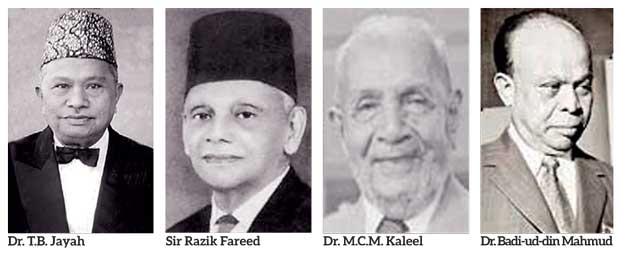 By Luke Baker
By Luke Baker
JERUSALEM (Reuters) – While Israel remains predominantly Jewish, Arab numbers within the area of historic Palestine are now close to eclipsing the Jewish population, creating a dilemma for supporters of a "one-state solution" to the region's conflict.
Long-term demographic trends mean that those who want Jews and Palestinians to live together in a single, enlarged Israeli state – including President Reuben Rivlin – face a difficult question: how could Israel remain both democratic and Jewish if Arab voters became a majority within its borders?
The United States and European Union still support a two-state solution: Israel and Palestine side-by-side. Israeli Prime Minister Benjamin Netanyahu has recommitted himself to the goal despite appearing to abandon it before elections in March.
But some Middle East scholars regard it as a diminishing prospect, raising the possibility of more radical alternatives. Population parity, however, challenges advocates of an enlarged state that would comprise Israel, the West Bank and Gaza.
Israel's central bureau of statistics released new population figures this week, as it does every year before the Jewish holidays, showing that the number of people in Israel has risen 1.9 percent in the past 12 months to 8.4 million.
Israeli newspapers were full of upbeat headlines about the 168,000 babies born and a 35 percent increase in Jewish immigration, particularly from France, Russia and Ukraine.
But behind the figures lie profound questions about demography and Israel's ability to remain democratic and Jewish, as set out in its declaration of independence.
The numbers show that while 74.9 percent of Israel's population is Jewish (6.3 million people), 20.7 percent (1.75 million) are Arab, both Muslims and Christians, made up of Palestinians who remained in Israel after its founding in 1948. The remainder are mostly non-Arab Christians.
This leaves Jews with a clear demographic edge, even if Arab population growth is slightly higher.
But the picture gets complicated when Israel's occupation of the West Bank and East Jerusalem is taken into account, as well as its relationship with Gaza, which was occupied until 2005 and remains tightly controlled.
The Palestinian population of the West Bank and East Jerusalem was 2.79 million in 2014, according to the Palestinian Central Bureau of Statistics. In Gaza, it was 1.76 million. That gives a total of 4.55 million in the areas that the Palestinians seek for their own independent state.
Coupled with the 1.75 million Arabs in Israel, that is 6.3 million people of Palestinian origin in Israel and the Palestinian territories – the same number as there are Jews. Given that the Palestinian figures are a year old, the number of Arabs may well already exceed that of Jews.
WHAT FUTURE?
At one level this is merely a numbers game. But at another, it is an extremely sensitive political issue, cutting to the heart of the Israeli-Palestinian conflict and the long-standing aim of an independent Palestinian state.
The last, U.S.-sponsored peace talks between the two sides broke down in April 2014, leaving a two-state solution further out of reach.
Some right-wing Israeli politicians, including members of Netanyahu's cabinet, dismiss the idea of an independent Palestinian state altogether, suggesting Israel instead annex most of the West Bank.
Others, including President Rivlin, advocate the one-state solution, but it would be hard for Israel to remain democratic and go on calling itself a Jewish state if this were ever to emerge.
"From the standpoint of those who want to maintain Israel's integrity as a Jewish and democratic state, the two-state solution becomes not just the only solution but also an increasingly urgent one," Michael Barnett, a professor at George Washington University wrote in the Washington Post last month.
"Anything else means that Israel either ceases to be a democracy (making Palestinians second-class citizens to retain its Jewish character) or ceases to be Jewish (because the first thing Palestinians do with the vote is change Israel's identity from Jewish to something else)."
While diplomatic efforts remain fruitless, either the status quo – in which Israel's occupation persists and a Palestinian state never quite emerges – continues for the foreseeable future, or radical steps are taken towards an alternative outcome, such as the one-state solution.
But if that is the case, Israel must think very hard about how it preserves its Jewish identity and its cherished status as a fully-fledged democracy in the Middle East, with equal rights for both peoples.
(Writing by Luke Baker; editing by David Stamp)
Source : http://news.yahoo.com
Post Disclaimer | Support Us
Support Us
The sailanmuslim.com web site entirely supported by individual donors and well wishers. If you regularly visit this site and wish to show your appreciation, or if you wish to see further development of sailanmuslim.com, please donate us
IMPORTANT : All content hosted on sailanmuslim.com is solely for non-commercial purposes and with the permission of original copyright holders. Any other use of the hosted content, such as for financial gain, requires express approval from the copyright owners.
 Sri lanka Muslims Web Portal Sri Lanka Muslims News Center
Sri lanka Muslims Web Portal Sri Lanka Muslims News Center
 Donate
Donate


